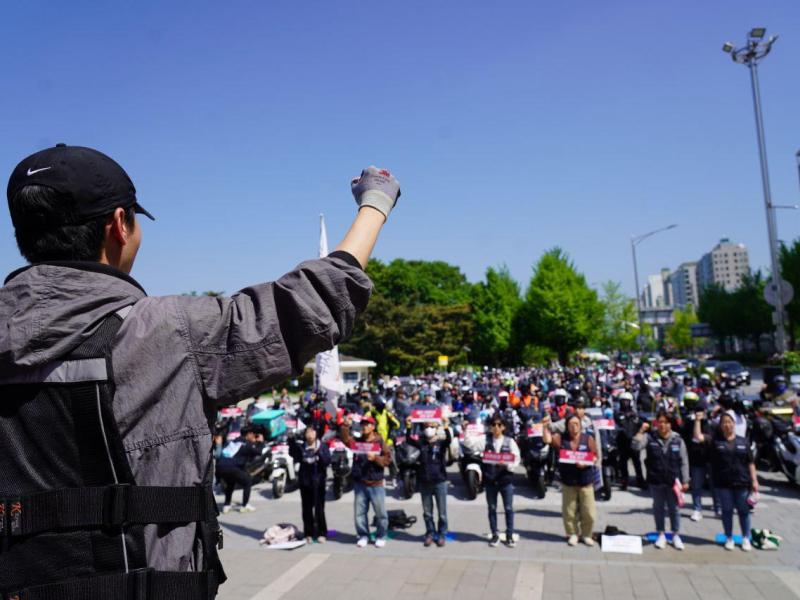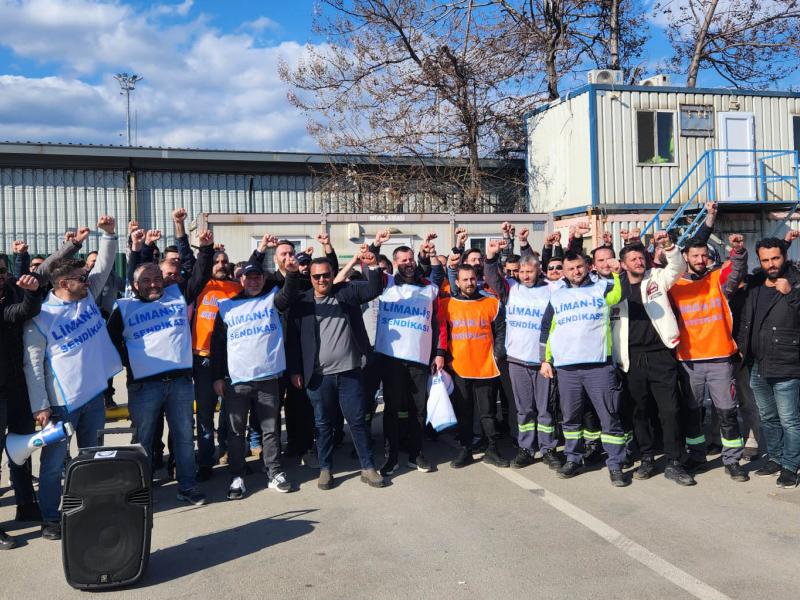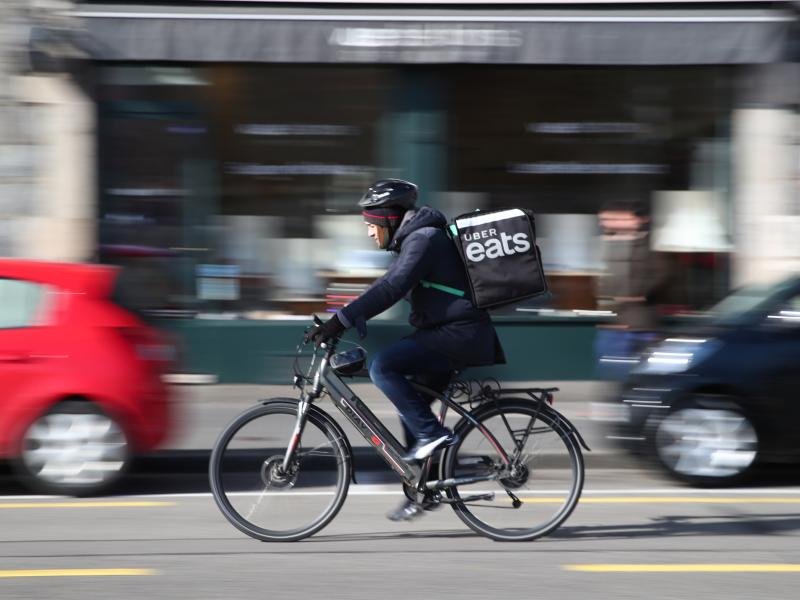On the eve of the landmark vote on Proposition 22 in California, the International Transport Workers’ Federation (ITF) has launched 10 gig economy employer principles. These demand an end to misclassification, as well as specific demands on social protections for gig workers related to living wages, safety, algorithmic management and data security.
On 3 November, Californian voters will be asked to decide on the future employment status of millions of riders, drivers and workers. This comes after Uber, Lyft and the other sponsors introduced a ballot measure asking Californians to exempt them from the ground-breaking AB5 state employment legislation, which makes it harder for companies to misclassify workers as self-employed contractors.
The companies argue that contractor classification benefits workers, but in reality it deprives them of job security, health care and paid sick leave, and allows companies to slash benefits, deny workers a minimum wage and social security protections.
“Gig employers like Uber and Lyft, through their 'Yes on Prop 22' campaign, have chosen to prioritise costly court cases and advertising campaigns to protect their corporate greed, instead of helping the employees who form the backbone of their businesses. With Covid-19 plunging even more people into precarity, these companies have made it clear they care more about profit margins than the people who work for them,” said ITF General Secretary Stephen Cotton.
“We call on these companies, and others across the globe, to read the ITF’s 10 gig economy principles and recognise that they have responsibilities to their workers' rights. Now more than ever is the time for companies, particularly multinationals, to fully discharge their corporate responsibility to respect human rights and raise the bar industry-wide.”
The $200 million 'Yes on Prop 22' campaign has seen Uber and the other sponsors flout internationally-accepted business and human rights principles in their pursuit of special status in California that would result in poorer pay, labour exploitation and more precarious work for millions of workers. Against the backdrop of a global pandemic that has hit essential gig workers hard, it is a perfect case study on irresponsible business conduct.
“The world needs more laws like AB5 that afford proper protections to millions of transport workers and dismantle business models built on exploitation and poor labour standards. We call on all Californian voters to vote ‘no’ to protect their transport workers, and at the end of the day, protect themselves,” said Cotton.
A number of countries have now classified gig economy workers as employees, said Baker Khundakji, ITF Youth Officer.
“Judges and regulators are coming to the same realisation: the gig economy is an employer like any other and gig workers are increasingly being recognised as employees, most recently in Spain,” said Khundakji.
“Gig workers around the world are tired of being exploited and tired of being misclassified as contractors. AB5 ends misclassification, which is a key demand of the ITF gig economy principles, and offers a sound basis for improving gig workers’ working conditions.”
“At a time when inequality is on the rise, and platform companies are poised to become an increasingly common source of income – for the sake of preserving decent work and ensuring that inequality and the erosion of workers’ rights is not further exacerbated – we say vote no to Prop 22, and then let’s take AB5 global!” said Khundakji.
The ITF gig economy employer principles:
- Health, safety and PPE for all workers with adequate and appropriate provision of personal protection equipment and sanitation facilities, and specific protections against violence and harassment in the workplace;
- Correct employment status classification and an end to disguised employment relationships;
- A labour protection floor that enforces ILO Fundamental Principles and Rights at Work, including gender rights, freedom of association and collective bargaining. These rights should be embodied in the algorithms themselves.
- Living wages, regardless of employment status, with negotiated cost recovery formulas for fairly classified self-employed workers. Workers must be paid on time, and should receive tips in full at the moment they are paid.
- Human and humane control where workers in the gig economy have their work conditioned and controlled by software and data. Named individuals should be responsible for the software and its impacts on workers.
- Fair digital contracts – flexibility should not come at the cost of decent working conditions. Deactivations from the app should follow a fair process in which appeals are heard. Contracts should specify rights to data, and changes to working conditions should be consulted and negotiated. Workers ratings should be portable across apps.
- Workers’ data rights – workers produce data that is then used to control their work, so they have the right to know what data is collected, what it is used for, where it is stored, and how the software built on it works. They should enjoy free access to all the data collected on them during working time, in recognition that it is their data since they created it.
- Gender neutral software – platforms must ensure that their algorithms and digital processes are tested so that gender biases against women in relation to pay, safety and other issues can be eliminated.
- Access to social protections including healthcare, pensions and other forms of social security and insurance protection; and,
- Paying taxes – social protections are paid by the state, but can only be paid for if companies adopt responsible business practices, such as paying their share of taxes.


